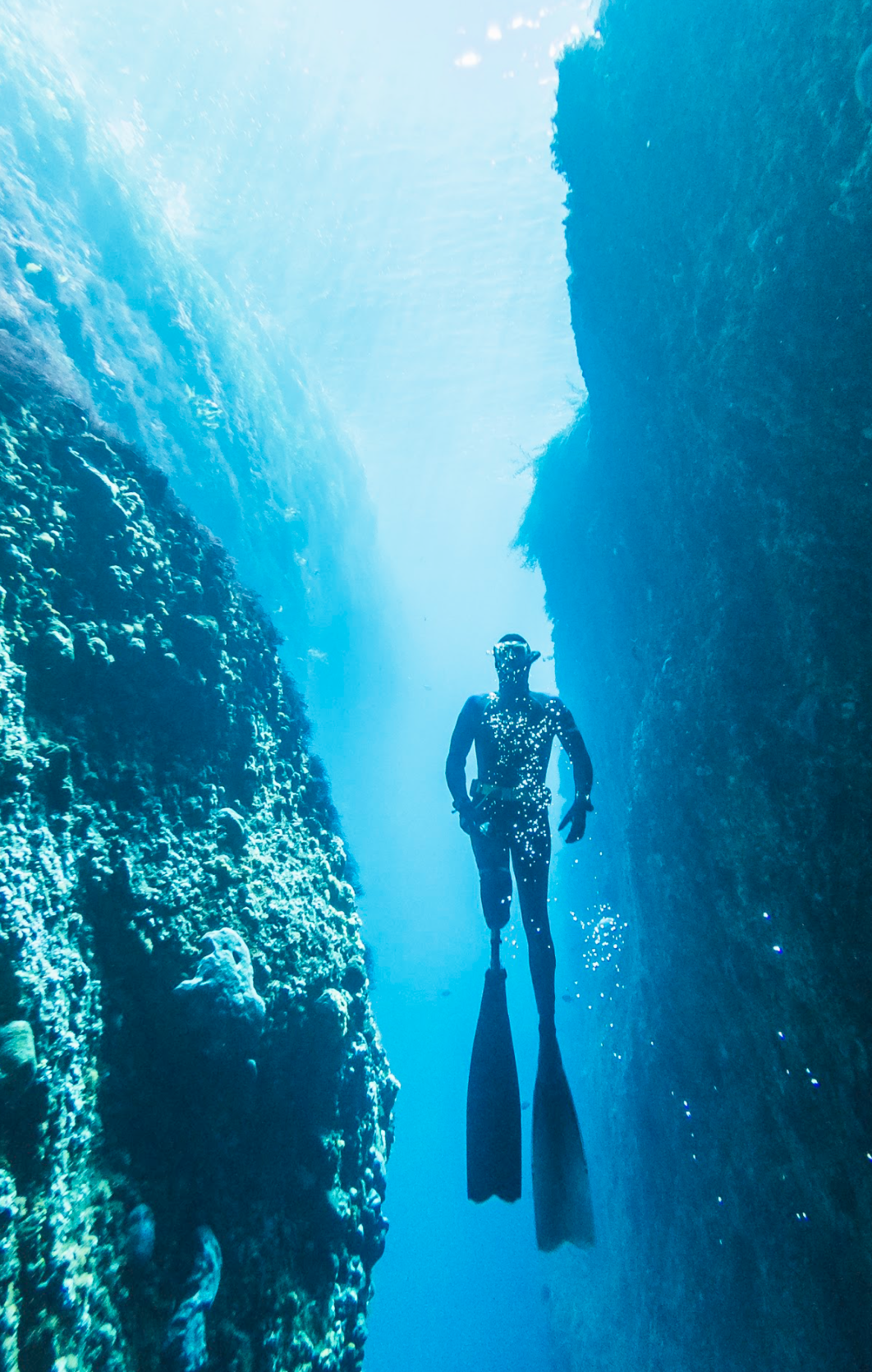Deep + meaningful
WORDS MARY ANNE GILL / PHOTOS SUPPLIED
On September 25, 2007, William Pike was caught in a lahar on the slopes of Mt Ruapehu. Less than 15 hours after the eruption, surgeons at Waikato Hospital were forced to amputate his severely damaged right leg below the knee.
In the years since the accident, 33-year-old William, who lives on Auckland’s
North Shore, has returned several times to the mountain where he nearly lost his life. He’s also tramped, cycled, kayaked, climbed Antarctica’s Mt Scott, established nationwide youth-development programme the William Pike Challenge Award, and become a sought-after inspirational speaker.
But scuba diving, something he’d done extensively before his accident, was what he really craved. “It was the last thing I got back into post-accident, and it took nine years,” he says.
Whenever William tried to dive, the air inside his knee socket would be squeezed by the increasing water pressure, causing discomfort as he went deeper. “I tried lots of different ideas to prevent it, and finally using a silicone liner has worked,” he says.
That success means the former primary school teacher is now considering taking on more aquatic adventures. He recently went freediving at the Poor Knights Islands Marine Reserve off the east coast of Northland, but a much bigger trip – like his recent expedition on the HMNZS Canterbury with the Sir Peter Blake Trust to the Kermadec Islands –beckons.
After the accident, William was transported by ambulance to National Park, where Taupo’s Lion Foundation Rescue Helicopter was waiting to take him to Taumarunui Hospital. There, a team from Waikato Hospital, who’d flown in on the Westpac Waikato Air Ambulance, joined with the local hospital staff to stabilise him in the resuscitation room. Twenty-eight minutes later, he was off to Waikato Hospital, arriving nearly six hours after the eruption. His heart rate was 40 beats per minute, his blood pressure 65/29 and, alarmingly, his body temperature was 25°C, the lowest doctors at the hospital had ever witnessed in a living person.
William credits his fitness for his survival. “I’ve always been lucky that outdoor education, sport and hobbies were instilled in me from a young age, which ensured I was fit.”
Today, that’s not changed – and neither has his positive attitude. For William,
every day’s a good day. “Everyone sees the shiny side of people, but there were times when [losing my leg] was a nightmare,” he says. “Yet I got through the devastation. I was glad to be alive because I knew I shouldn’t have been.”
Setting himself goals while he recovered in hospital helped a lot. “I tested the boundaries,” he says. “The standard ACC leg was not what I wanted. The reality is, the Limb Centre decides what prosthetics you get depending on your [needs]; a Lamborghini is no good for a farm track, for example. To begin with, you get a stock- standard foot without much flex in it.”
Although gagging to return to his active lifestyle, William had to work towards it – and that started with adapting to life as an amputee. To give himself purpose and direction, he returned to the classroom within three months, then in 2009 established the William Pike Challenge Award – a personal-development programme for children in Years 7 to 9.
He doubts his life would have panned out the way it has had it not been for the accident. “I’d probably be teaching in a classroom and impacting on 30 kids a year, and now I’m impacting on 1000 kids or more a year.”
In 2014, William married Rebecca, a fellow school teacher, and the couple now has a daughter named Harriet. “I want to explore with Rebecca, run around with Harriet and take her on adventures, run a business, pay the mortgage,” he says. “We can all be explorers in our own world – whatever we do. If I didn’t have that explorer mindset, I’m not sure the challenge award would be what it is now.”
Happily, there’s no need for William to have any more operations, provided he’s careful, which he is. “During summer, it’s a battle because I always want to be out there doing stuff, but I sweat a lot in the [prosthetic] leg. I have to take it off and dry it, sometimes every 15 minutes, which really slows me down. At the same time, though, it gives me an opportunity to stop and think – a little like hitting the refresh button.”
William doesn’t consider himself disabled. “I’ve just got some challenges that makes things a bit more difficult. But I can do some things other people could never do. There’s always someone worse off than you.”

